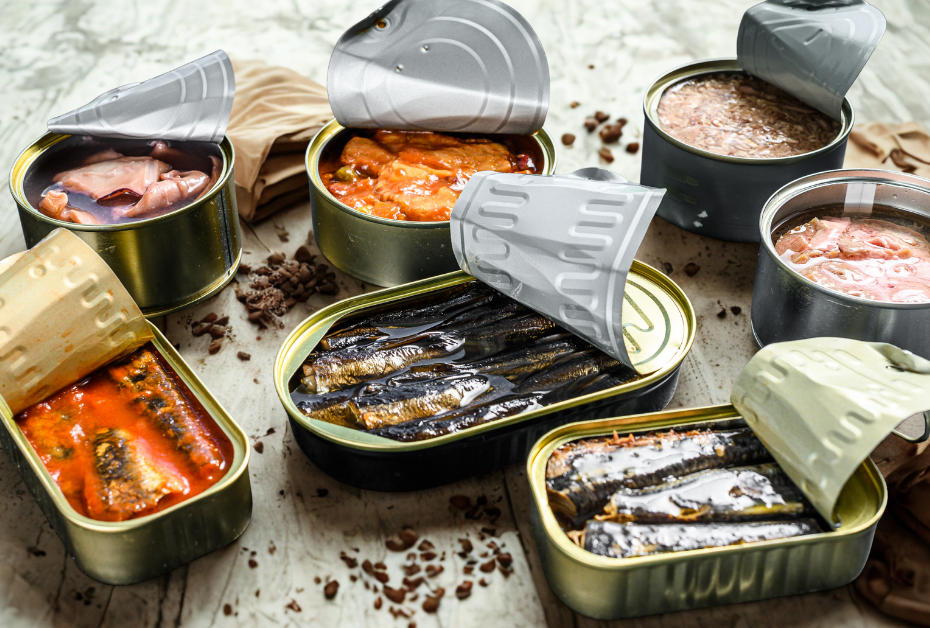The health risks of canned food that aren’t obvious: how processing takes away nutrients and hurts your health

Canned food is a common part of many people’s diets these days because life moves so quickly. It’s simple to store, lasts a long time, and is useful. But have you ever thought about what’s in that can and how it can be bad for your health? Canned food can save time and effort, but it can also cause nutrient loss and long-term health issues.
What Happens During Canning?
Canning is a way to keep food fresh by sealing it in airtight containers and heating it to kill unwanted microorganisms. This method prevents food spoilage, but it also alters the can’s nutritional content in unplanned ways. Canning requires a lot of heat, which can break away many important vitamins and minerals. This makes the food less healthy than fresh food.
Nutrient Loss in Canned Foods
One of the worst things about canned food is that it loses important elements, like vitamins and minerals. The canning process alters several crucial nutrients:
Vitamin C: Canning can cut the vitamin C level in half since the high heat kills this vitamin. Vitamin C is essential for the immune system, healthy skin, and mending wounds.
B Vitamins: These vitamins are essential for making energy and keeping the brain healthy. They can be greatly reduced in canned meals. Heat is especially bad for vitamin B1 (thiamine) and vitamin B6.
Minerals: Calcium, magnesium, and potassium are more stable in heat, but some can still be lost during processing. Losing these nutrients can hurt your bones, muscles, and overall health.
Fiber: When fruits and vegetables are canned, some of their fiber may be lost. These deficiencies could cause digestive problems if you eat canned meals instead of fresh produce all the time.
The Health Risks of Consuming Canned Food Regularly
If you eat canned foods a lot, the lack of nutrients can start to build up. Here are some ways that not getting enough nutrients might hurt your health:
Weak Immune System: If you don’t get enough of important vitamins, including vitamin C and B vitamins, your immune system can become weaker, making you more likely to get sick or infected.
Higher Risk of Long-Term Illnesses: Eating foods poor in fiber and important nutrients can make you more likely to get long-term illnesses like heart disease, diabetes, and obesity. Not getting enough minerals might also hurt your bones and muscles.
Weight Gain and Digestive Problems: Canned meals are generally heavy in sugar and sodium, which can make you gain weight, raise your blood pressure, and cause stomach problems. Too much salt might also make you hold on to water and make you feel bloated.

Is Canned Food Always Bad?
Not all food in cans is the same. Most canned foods do lose some nutrients during processing; however, some types of canned food, such as beans, tomatoes, and select fruits, still have a lot of their nutritional worth. The most important thing is to read labels carefully and pick foods that don’t have a lot of added sugar, salt, or preservatives. Choosing cans that don’t contain BPA can also lower the chance of coming into contact with dangerous chemicals that are sometimes utilized in the canning process.
Tips for Healthier Eating: While occasionally consuming canned food is acceptable, it’s also advisable to consume fresh, complete meals. To make sure your body gets all the nutrients it needs, eat many fruits, veggies, and whole grains.
Find options that are low in sodium or have no added salt: To cut down on the amount of sodium you eat, choose canned veggies, soups, or beans that say “low sodium” or “no salt added.”
Rinse Before Eating: If you use canned beans or veggies, rinse them under cold water to get rid of extra salt and preservatives.
Use Fresh or Frozen When Possible: Fresh or frozen foods are the best for getting the most nutrients. Fresh foods are less likely to lose nutrients compared to canned foods.
In conclusion
Canned foods may seem like a cheap and easy alternative, but the nutritional costs can be higher than the advantages, especially if you eat them often. Canning removes many of the food’s vitamins, minerals, and fiber, so it’s not as healthy as you think. To stay as healthy as possible, strive to eat fewer canned foods and more fresh foods that are full of nutrients whenever you can. In the long run, your body will thank you!
Also Read:
5 Superfoods That Can Transform Your Kidney Health
Are You Doing These 10 Harmful Things?





Pingback: The Health Risks Astronauts Face After Returning from Space: Fluid Shifts, Bone Density Loss, and More
Pingback: "Fauja Singh, World’s Oldest Athlete, Dies in Tragic Road Accident at 114" -
Pingback: AdFalciVax: India’s Game-Changing Malaria Vaccine Targets Disease at 2 Levels -